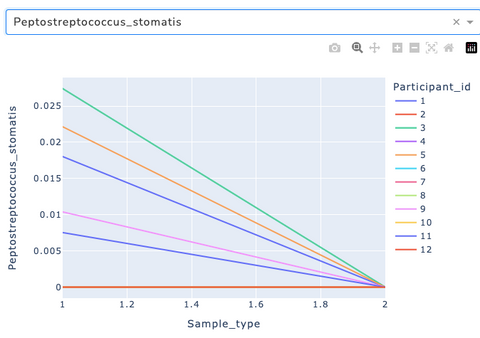SUPER TEETH Shows Positive Effects On The Oral Microbiome

Effects of SUPER TEETH Dental Probiotic + Prebiotic on the Oral Microbiomes of 12 Adult and Children Volunteers
Abstract
Aim: This study was designed to analyze the effects that SUPER TEETH Dental Probiotic + Prebiotic (containing 33 mg [3 billion CFU] Streptococcus salivarius M18, Lactobacillus reuteri and Lactobacillus paracasei) has on the bacterial make-up of a person’s oral microbiome.
Material and methods: The study consisted of 6 adults and 6 children. All participants took a Bristle Oral Health Test prior to the study and sent their saliva to be analyzed by Bristle’s scientists to find out what types of bacteria and how much of each bacterial species were present in the mouth. Then all participants savored a SUPER TEETH Dental Probiotic + Prebiotic tablet in their mouth twice daily after brushing for a duration of 30 days. No other changes were made to the participants' normal diet and normal oral hygiene routine. A day after the conclusion of the study, all participants took the Bristle Oral Health Test again and sent their saliva samples to be analyzed by Bristle's scientists to find out if a change in their oral microbiome occurred.
Results: SUPER TEETH Dental Probiotic + Prebiotic showed to positively impact the oral microbiome by encouraging the growth of certain beneficial bacteria and reducing the amount of certain pathogenic bacteria.
Figure 1:

Peptostreptococcus stomatis is an anaerobic species of bacteria that causes halitosis and colonizes both the tongue, and the gumline. All participants who had Peptostreptococcus stomatis present in their mouth pre-study had no detectable levels of this bacteria post-study.
Figure 2:

Streptococcus mutans is a facultatively anaerobic, gram-positive bacteria and is a significant contributor to tooth decay. In one participant, Streptococcus mutans was detected at the start of the study. Post study, no detectable amounts of bacteria remained.
Figure 3 and 4:


Streptococcus gordonii and Streptococcus sanguinis, two beneficial species that compete with Streptococcus mutans, and aid in remineralization through alkali production via arginine metabolism. Both of these species also produce hydrogen peroxide and can limit the growth of anaerobic species on the tongue and teeth. Almost all participants saw an increase in these two types of bacteria when comparing pre and post study results.
